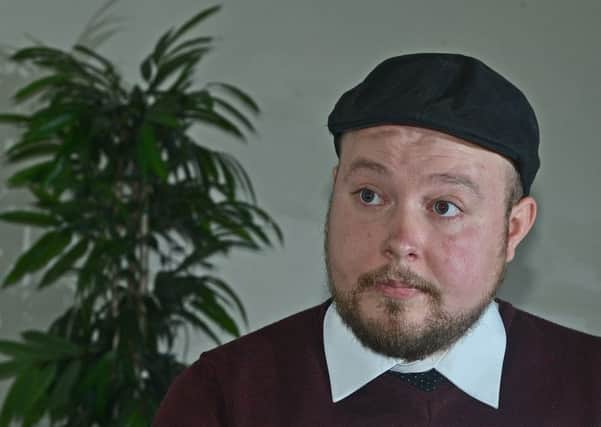Being in the Royal Edinburgh Hospital '˜scarier than illness'


Gareth Jones was speaking as The Mental Welfare Commission launched a new rights guide for patients at Surgeon’s Hall yesterday.
The 29-year-old spoke candidly about the time he spent on the psychiatric ward after being hospitalised in 2008 for three months – after he was given a diagnosis of first-episode psychosis.
Advertisement
Hide AdAdvertisement
Hide AdGareth, from Craiglockhart, had just completed his second year studying geography at St Andrews University and was at a summer camp in France when he started hearing voices and became paranoid.
He was rushed back home after his parents came to collect him from Bristol Airport and taken to the Royal Edinburgh Hospital.
Gareth, who has since returned to university to complete a counselling certificate, said he was assessed by the first people he spoke to at the hospital, then taken in overnight and dumped in a ward – with little explanation as to what was happening.
And a lack of communication meant he didn’t really know if he could leave the hospital, which he entered on a voluntary basis, while his rights were never explained properly to him.
Advertisement
Hide AdAdvertisement
Hide AdHe said: “I have the odd recurrence and I hear voices every now and then, and I get paranoid every now and then but because I’ve had so much life experience of dealing with it, I’m developing coping mechanisms.
“I’ve also developed a prospective on it – if I hear a voice that at one point would be a scary thing because I’d think ‘oh this is scary’, because not only is it a scary horrible voice, but it means I may have to go back to the ward. That was the scariest thing really – not the actual medical condition.”
Gareth said he knew little about psychosis and had no idea what the condition would entail. He welcomed the new guide – Rights in Mind – which aims to ensure mental health patients have their human rights respected at key points in their treatment.
He added: “It’s important to point out that as a first admission someone is vulnerable and they don’t know what they’re getting themselves into on a mental health ward.
Advertisement
Hide AdAdvertisement
Hide Ad“I feel it could be explained better if you’re voluntary or involuntary, when you’re on the ward and also the difference between the two things – what they entail and what the difference in your rights are, regarding things like taking medication and passes that enable you to leave the ward. I wasn’t told if I could leave, would I have to take medication and I kept being told that I would have to take medication and at points I tried to refuse it but I wasn’t allowed.”
Kate Fearnley, executive director at the Mental Welfare Commission, said: “Being admitted to hospital for mental illness can be frightening or confusing, particularly for new patients. People who have gone through that experience told us that it would have helped if their rights had been explained to them.”